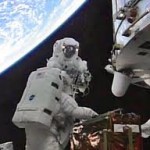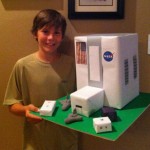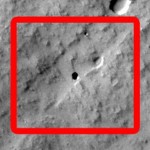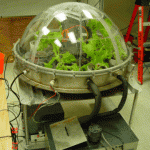 STEM (Science, Technology, Engineering, and Mathematics) is an adventure where the unknown becomes known and then becomes common knowledge! Humans have an interest in “what”, but so do dogs and cats – 1) “What is that?”, 2) “Is it food?”, 3) “Yes and I can eat it!” Humans also want to know “how” in addition to “what”, which makes us different from dogs and cats!
STEM (Science, Technology, Engineering, and Mathematics) is an adventure where the unknown becomes known and then becomes common knowledge! Humans have an interest in “what”, but so do dogs and cats – 1) “What is that?”, 2) “Is it food?”, 3) “Yes and I can eat it!” Humans also want to know “how” in addition to “what”, which makes us different from dogs and cats!
Humans asked the question “how” did that food get there. Dogs and cats eat the food they “find” and move on. Humans want to know how did that food get there. How can I find more, or how can I make food? Then the unknown becomes known and then becomes common knowledge!
 STEM comes from humans asking “how”. Your food was planted and grown by farmers, shipped to processing facilities, then shipped to grocery stores, and finally purchased and taken home to eat. A dog and cat only knows that a can or bag is opened, and the food comes out. They know nothing else about the food. They DON’T want to know anything else. Do not be like the dog and cat!
STEM comes from humans asking “how”. Your food was planted and grown by farmers, shipped to processing facilities, then shipped to grocery stores, and finally purchased and taken home to eat. A dog and cat only knows that a can or bag is opened, and the food comes out. They know nothing else about the food. They DON’T want to know anything else. Do not be like the dog and cat!
 Many students across the world are asking “How”, but more students should get involved. Getting involved should be based upon the student’s interest and passions. For example, many students will turn their “How” into a Science Fair project; while others will build models – airplanes, rockets, robots, and NASA landmark replicas. Can you imagine how excited the student will feel that built a model of the Vertical Assembly Building (VAB) from a picture when he visits the actual building for the first time at the Kennedy Space Center!
Many students across the world are asking “How”, but more students should get involved. Getting involved should be based upon the student’s interest and passions. For example, many students will turn their “How” into a Science Fair project; while others will build models – airplanes, rockets, robots, and NASA landmark replicas. Can you imagine how excited the student will feel that built a model of the Vertical Assembly Building (VAB) from a picture when he visits the actual building for the first time at the Kennedy Space Center!
Click here to see more pictures of STEM projects by students.
We acquire STEM knowledge from three major areas:
- Back to the Future – Build the future on previous work done in the past!
- Sputnik
- Apollo Moon Exploration
- Mariner Mission to Mars
- Voyager Missions Out of the Solar System
- Here and Now – Touchy, feelly things that can be done now.
- There is a Lot of Space in Space!
- Seventh Graders Discover Cave on Mars
- Robots for Mars
- Rocket Science is Common Fun Science!
- Imagination Central – No bad answers; only good questions!
- Interaction with Space Games and Simulations
- How Can Food Be Grown on Mars?
- What is Dark Matter and Dark Energy?
- Do People Really Live on Exoplanets?
STEM learning should be fun and attractive. STEM students should be learning about ideas and concepts that are, or will be, common knowledge one day!


